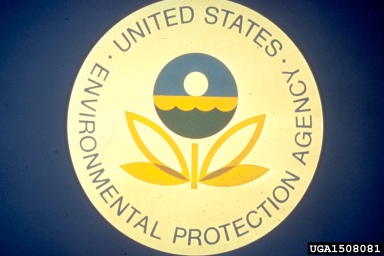In the race to compete in a global economic recovery, the U.S. may have a secret weapon against rivals like China and even economies closer to ours, such as Canada. China may be graduating more engineers and scientists; Canada may have a better health care system; but the U.S. has an unlikely secret weapon that has put American companies and workers in a position to race ahead of the pack for years to come — the Environmental Protection Agency.
While some in Congress, and any number of business leaders, have moaned about environmental regulations, especially the EPA’s nascent efforts to curb carbon emissions, the truth is that thoughtful protection of the environment saves money and lives, which makes America more competitive. By sharp contrast, the Washington D.C. based International Fund for China’s Environment estimates that China must spend at least 2 percent of its GDP annually — over $100 billion — to clean up decades of pollution which now threaten food production, public health, and worker productivity. Without this investment, China will lose far more. The Academy for Environmental Planning, part of China’s Ministry of Environmental Protection, estimates that the country lost over 3 percent of its GDP in 2004 from these types of pollution-related costs, while the World Bank in 2007 estimated these costs at nearly 6 percent.
Closer to home, in Alberta, Canada, whitefish in Lake Athabasca have shown alarming levels of golfball-sized tumors and deformed tails and snouts. These Frankenfish are all found downstream of the tar sands developments in Alberta, decimating native fisheries and causing alarm among those who recreate in the lake or take drinking water from the same sources. In 2007, Environment Canada issued studies confirming the unusually high levels of deformities in fish embryos exposed to tar sands pollution.
While the U.S. certainly still has its costly environmental challenges, such as the growing concern over natural gas extraction from “fracking,” our environmental regulators have largely reversed the types of trends seen today in China and Alberta. Moreover, smart U.S. companies have realized that a healthy environment leads to a healthy economy. Last year, the Harvard Business Review concluded that sustainability policies are the “motherlode of organizational and technological innovations that yield both bottom-line and top-line returns” even in a severe recession.
At last week’s World Energy Congress in Montreal, for example, I heard GE executives extol the profits from their green products and, as a result, the creation of a voracious corporate appetite for more. GE recently kicked off its “Ecomagination Challenge,” offering $200 million for fresh products and services that could revolutionize the power grid, expand the use of renewable energy, and improve energy efficiency in buildings, all in search of new clean, green opportunities. Ford, HP, and even consulting firms such as Accenture were all at the Congress promoting new lines of business that focused on a clean economy and predicting the profits that would result for themselves and their customers.
As the China and Alberta examples demonstrate, dwindling natural resources and impaired public health have not been enough to ensure smart choices with long-term benefits. In the U.S., regulation of pollution sources has helped significantly to level the playing field and curtail the costs associated with rivers that once burned and the most egregious impacts on worker health.
As Congress continues to fumble the ball on dealing with carbon pollution, the EPA and its regulatory programs may just be the secret weapon that helps America and its businesses be more efficient and stand out at more than just global conferences. The alternative is China’s future of diverting vast sums of public money to clean up the mess or Canada’s future of learning to eat fish with two heads.



